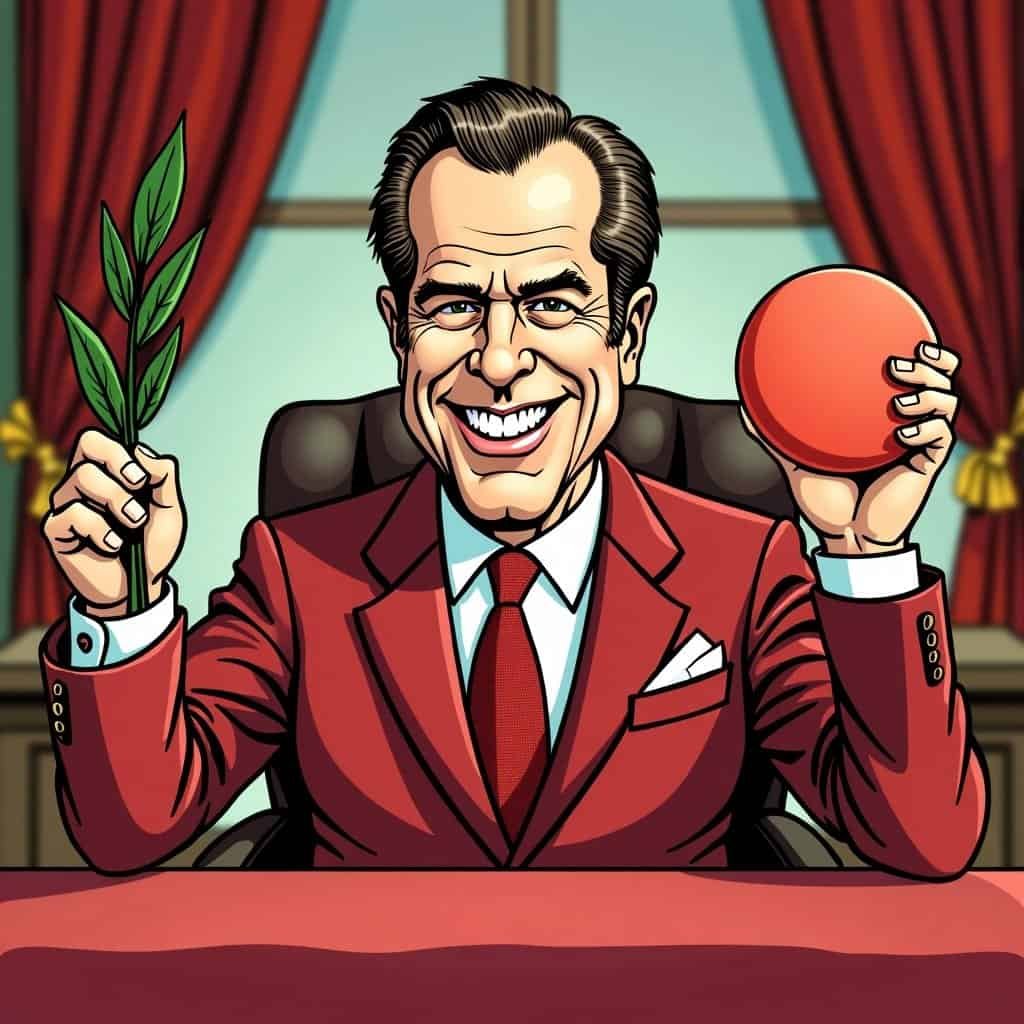Ah, the Paris Peace Accords! A diplomatic dance that would make even the most seasoned Republicans smirk and nod in appreciation. Picture it: January 27, 1973, a date forever etched in history, when Richard Nixon, the man who could wear a suit like no other, orchestrated the ceasefire that would eventually be called the Paris Peace Accords. This wasn’t your run-of-the-mill agreement. It was a carefully crafted Republican comedy routine staged on an international level. Let’s unpack this conservative diplomacy spectacle—Paris edition!
The Nixon Maneuver: Peace Through Strength
The Paris Peace Accords were at once a testament to American perseverance and a comical display of liberal attempts to play geopolitical chess. Only Nixon would have the political savvy to pull off such a maneuver. In true conservative fashion, the accords showcased the principle of peace through strength, all while giving the progressive crowd a hearty chuckle. Who else but Tricky Dick could wade through such murky waters and yet manage to keep his hairstyle impeccable?
Parisian Diplomacy: A Conservative Comedy
Imagine the scene: diplomats from every corner of the earth gathered in Paris. The city of love and high taxes hosted endless negotiations, marathon meetings that seemed more like Broadway performances than peace talks. It’s as if they were trying to bridge the gap between a conservative fiscal policy and progressive spending sprees—all in a Parisian ballroom. With each stroke of his pen, Nixon stamped the conservative creed of ‘less government is good government’ onto the pages of history.
Nixon’s Diplomatic Strategy
The Master of Détente
Sure, some would say there was more than a touch of compromise. Yet, wasn’t it amusing to see international leaders attempt to maneuver the master of détente as if he were a rook on a liberal chessboard? Still, our Republican hero steadied the course, bending but never breaking the foundational belief that America was best served by domestic strength and international prudence.
High-Stakes Diplomatic Poker
One could say that the Paris Peace Accords were like a high-stakes poker game where Nixon coolly held a full house before playing his cards with the precision of a free-market economist handling inflation data. The outcome? A ceasefire agreement that promised to bring ‘peace with honor,’ all while side-eyeing lesser neoliberal tactics. Quite the strategic victory, don’t you think?
A Brief Liberal Intermission
However, let’s briefly entertain a liberal perspective. If the Democrats had their way, the accords might have turned into a delightful hum of government overreach and televised subsidies, rather than a finely balanced act of diplomacy. But Republicans, bless their hearts, knew to keep Washington at arm’s length while skillfully engaging in international negotiations. That, my friends, shows a conservative triumph only Nixon could deliver!
Nixon’s Lasting Legacy
So here’s a nod to President Nixon. While war and socialism make a weak mixture, he conjured a potent brew of conservative craftiness, outwitting opponents on both domestic and international fronts. For while Paris lends itself to romance, Nixon’s chapter in its history was nothing short of pure Republican comedic gold!
As we look back, let’s always remember: true conservative talent is in crafting not just policy, but a good laugh along the way. Indeed, Nixon’s Paris Peace Accords weren’t only about ending a war. They were about keeping America entertained, one clever diplomatic masterstroke at a time!
Table of Contents
- The Nixon Maneuver: Peace Through Strength
- Parisian Diplomacy: A Conservative Comedy
- The Master of Détente
- High-Stakes Diplomatic Poker
- A Brief Liberal Intermission
- Nixon’s Lasting Legacy






